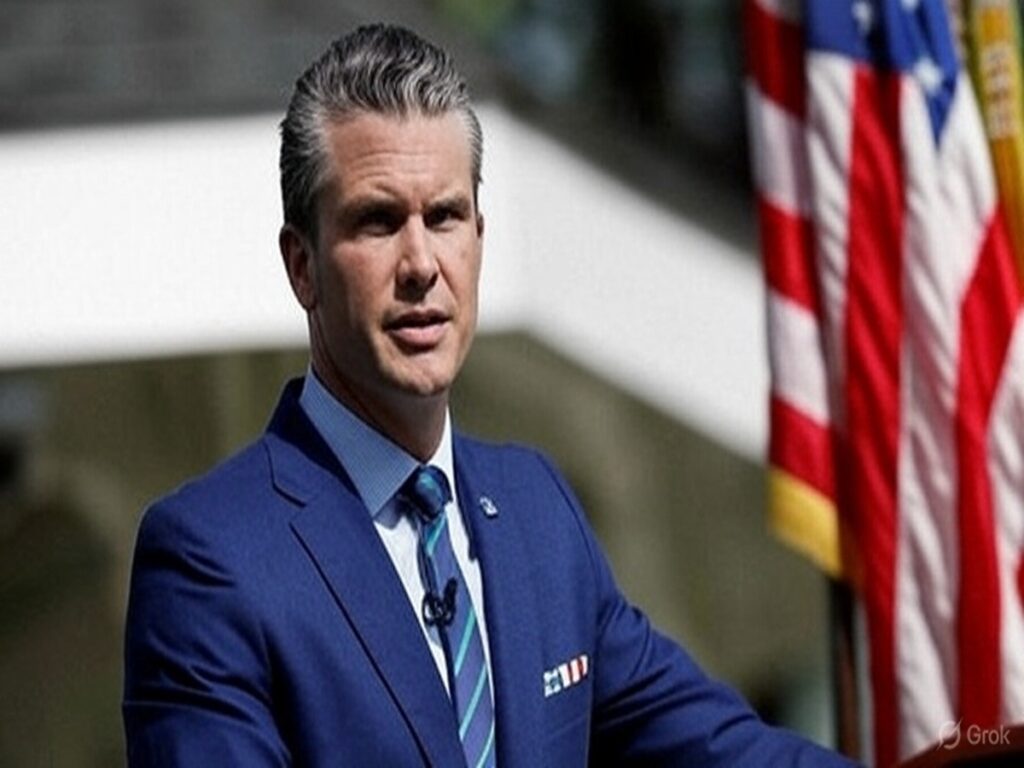At the Shangri-La Dialogue, US Defense Secretary Pete Hegseth warns of China’s imminent threat in the Indo-Pacific, calling for heightened military readiness among allies.
Singapore: US Defense Secretary Pete Hegseth delivered a stark warning at the Shangri-La Dialogue on May 31, 2025, accusing China of preparing for military action in Asia and urging regional allies to bolster their defenses. Highlighting the Indo-Pacific as America’s “priority theatre,” Hegseth emphasized the need for a united front to counter Beijing’s growing assertiveness.
China’s Military Buildup and Taiwan Threat
Hegseth accused Beijing of building capabilities for a potential invasion of Taiwan, noting that China is “rehearsing for the real deal” through large-scale military exercises. He warned that the threat is “real and could be imminent,” citing China’s goal to be militarily capable of taking Taiwan by force by 2027. Tensions over Taiwan have escalated, with Chinese fighter jets increasingly intruding into the island’s airspace in what experts describe as “greyzone tactics” aimed at pressuring Taipei.
South China Sea Tensions Escalate
Hegseth called China’s actions in the South China Sea a “wake-up call,” pointing to Beijing’s illegal seizure and militarization of disputed territories. Beijing claims nearly all of the South China Sea, a vital global trade route, despite a 2016 international ruling rejecting its claims. Recent clashes with the Philippines, particularly near the Scarborough Shoal, have heightened regional tensions. On the same day as Hegseth’s speech, China’s military conducted “combat readiness patrols” near the disputed reef, further stoking concerns.
US Commitment and Allied Response
Reaffirming US commitment, Hegseth echoed President Trump’s pledge that “China will not invade Taiwan on his watch.” He urged Asian allies to increase defense spending and modernize their militaries, noting that NATO allies in Europe are targeting 5% of GDP on defense—a benchmark he suggested Asian nations should emulate. However, his call drew mixed reactions. US Senator Tammy Duckworth, attending the dialogue, criticized Hegseth’s tone as “patronizing,” arguing that allies should stand together without being pressured to choose between the US and China.
China’s Absence and Regional Dynamics
China’s decision to send only a low-level delegation from the People’s Liberation Army National Defence University, rather than senior officials, was seen as a snub amid strained US-China relations. This follows heightened trade tensions, with Trump accusing China of violating a tariff truce. Meanwhile, a 2025 International Institute for Strategic Studies report noted that Asian nations are increasing weapons spending, averaging 1.5% of GDP on defense, as they seek to balance security ties with the US and economic relations with China.
Broader Strategic Shifts
Hegseth’s speech comes as the US pivots its focus to the Indo-Pacific, with Europe taking on more responsibility for its defense amid the Russia-Ukraine conflict. The US has bolstered military cooperation with allies like the Philippines, deploying advanced systems like the Typhon missile system in 2024. However, some allies remain wary of Trump’s aggressive trade policies, including new tariffs, which Australia’s Defense Minister Richard Marles called “counterproductive” to regional stability.


